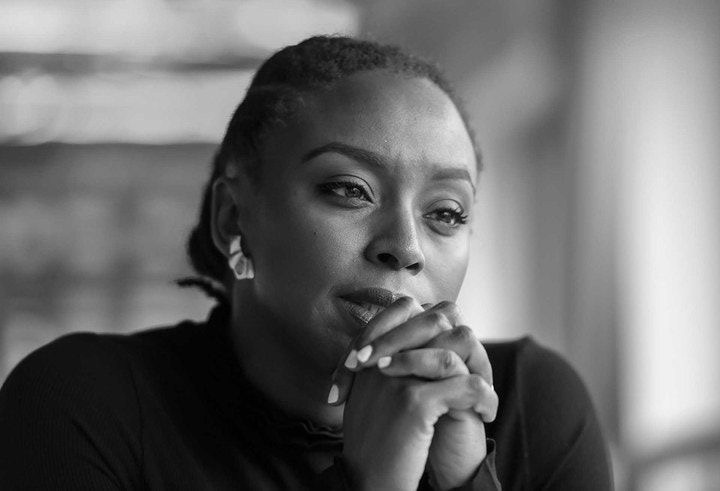
Cancelling Chimamanda
CANCELLING CHIMAMANDA: an Opinion.
By Etienoabasi Nana
Chimamanda Ngozi Adichie is a Nigerian writer who has made her mark as one of the most prominent names in the literary world.
She won the hearts of Nigerians as soon as her first Novel, Purple Hibiscus, dropped, and has continued to do so with the fluidity, relatability and beauty of the writing in her later books.
Her takes on feminism, culture and politics drive a very strong message in the hearts of many Nigerian women, and her quotes have been framed, reposted, and shared widely by every aspiring young writer. She’s even sparked the infusion of her name—which she made up (Story for another day)— as girl name options for expectant mothers, and that’s a pretty big deal!
Clearly, she’s a role model of sorts, and as such, her words hold very high value when it comes to issues in society. She’s quite literally the Beyoncé of Writing, and one of her most alluring traits is her ability to engage you with her words. She speaks with an accent so distinctly Nigerian, it makes you feel both understood and proud, and as such, when the news first came that she was on the list of people to soon be cancelled, a controversy was immediately sparked.
In her latest Essay, ‘It is Obscene: A true reflection in three parts’;https://www.chimamanda.com/news_items/it-is-obscene-a-true-reflection-in-three-parts/
Adichie reveals facing a series of cyber bullying because of statements recorded in an interview she made in 2017 asserting her stand on Transgender women, “Trans Women are Trans Women.”
This statement apparently struck a nerve so hard among Transgender women, she was simply not considered respectable any longer. In their community, she’s now referred to as a “TERF”—among other interesting titles, and Adichie wrote this essay to clarify her points and straighten out her stand on the subject.
Without naming any names in this essay, she alluded to one of the spear headers of the “CANCEL CHIMAMANDA” riot, an ally of the Trans community, and ever since it went live, it began a discourse so impactful that it left people either siding with their role model, or developing new opinions as to why they no longer could. There’s great emotion in this piece, as well as the author’s personal truths, which just provokes and urges you to think and think again.
In the end, everybody is entitled to their own opinions concerning what they believe is socially acceptable. But if you were to inquire about the opinion of this writer, it would be that Chimamanda is her role model, and without saying much, that is saying a lot.
0 Comments Add a Comment?